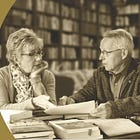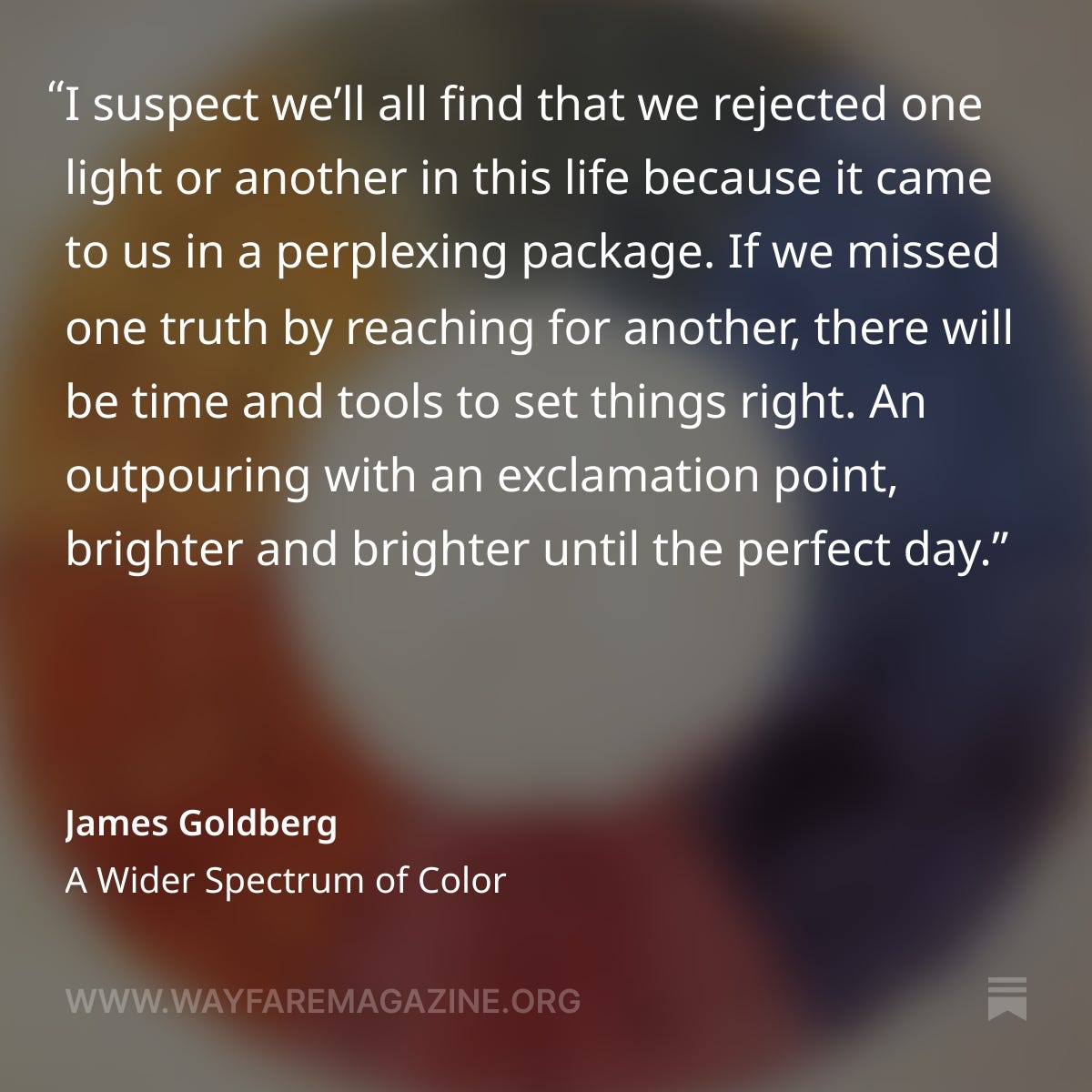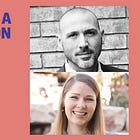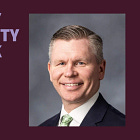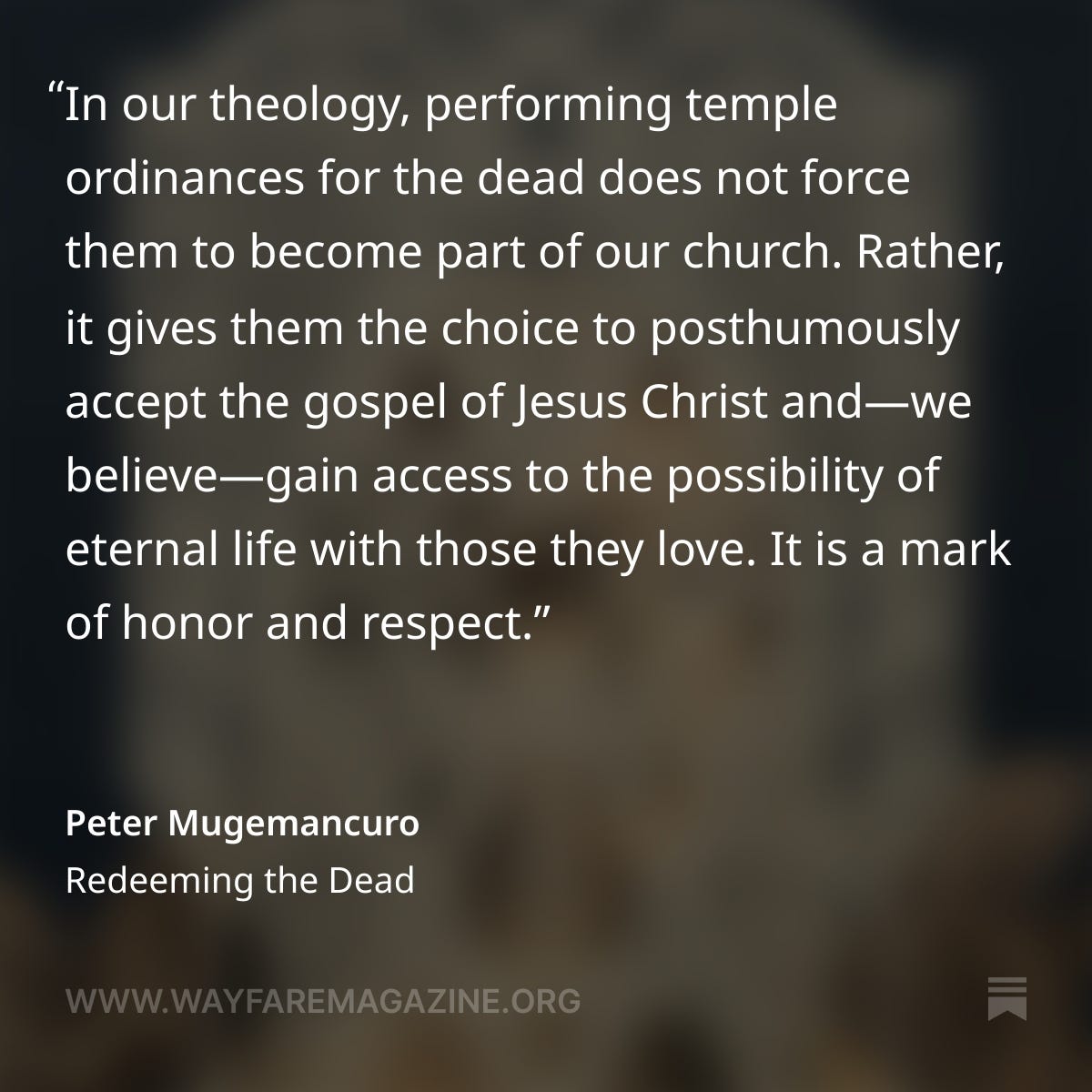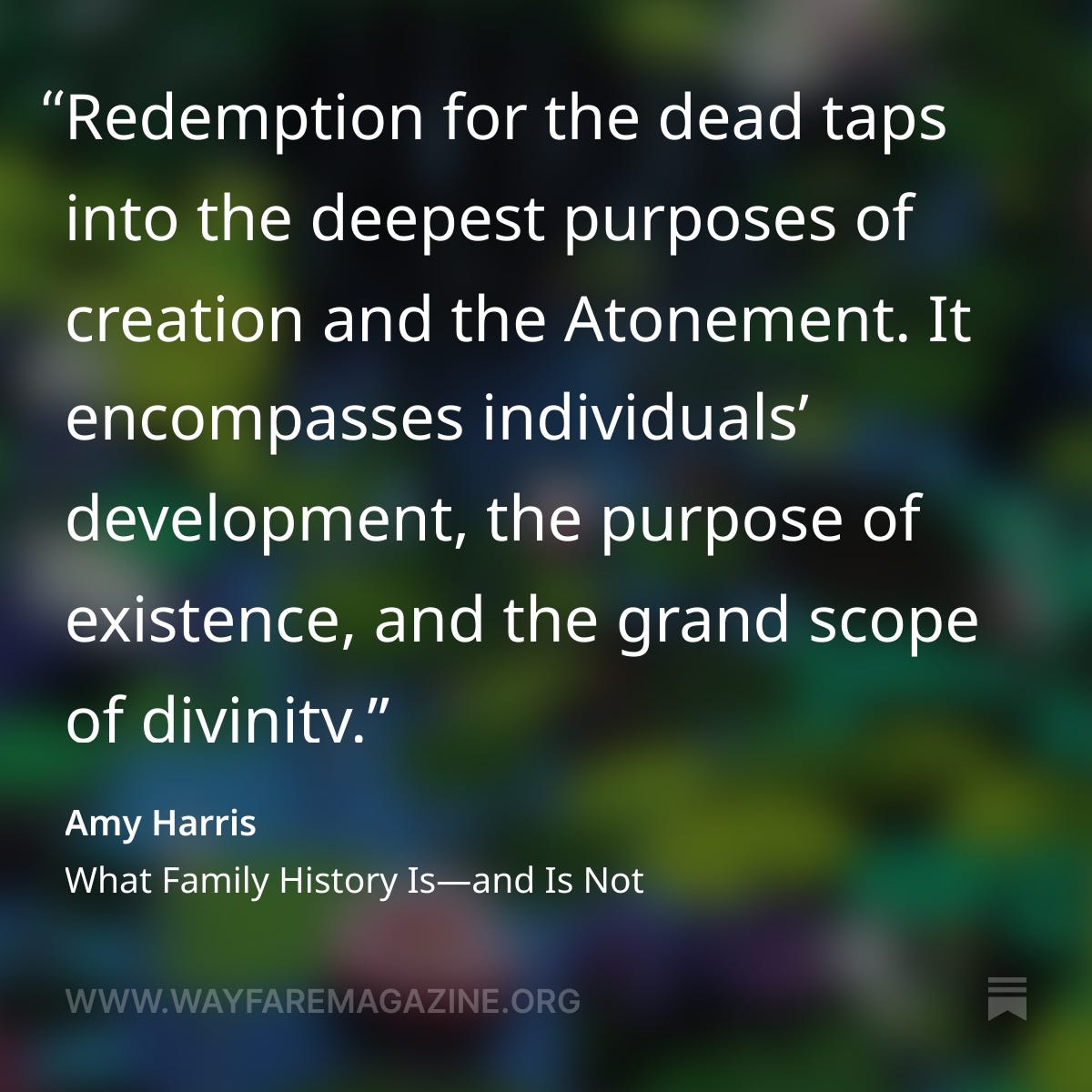How expansive is heaven?
Faith Matters resources to accompany your Come Follow Me study: December 1-7

All of Heavenly Father’s children will have the opportunity to choose eternal life.
We’ve traced the history of how LDS prophets have understood the scope of God’s capacity to exalt us. And we try to be clear in all our work, we’re not proclaiming doctrine, but we are reconstituting history, and excavating history, and celebrating that history. And Joseph Smith clearly believed that we would continue to progress indefinitely until we all find ourselves back in God’s presence. I mean, he was very clear about this. And the scriptural record seems to affirm this in his own life.
In section 76, he sees the characterizations and qualifications for the various degrees of glory. He had been traumatized by the death of Alvin. When it comes to the terrestrial kingdom, he reads or hears that that’s where the honorable men of the earth who died without a knowledge of the gospel would go. And it seems clear by by context that he would have assumed, “thank goodness, Alvin is at least in that kingdom.”
And I think it’s important, again, Joseph is working from a particular paradigm. He’s working from a paradigm that if you die unbaptized and un-catechized, you go to hell and you never come out of it. And that’s the paradigm in which he’s working. So at least it’s progress to make it a terrestrial kingdom.
He knows Alvin. He knows Alvin was a beautiful, noble and great man. So the relief, but then the shock in [section] 137, a few years later. And he uses the word amazed, I think this is a wonderful thing, that the prophet himself finds himself amazed to see Alvin in the celestial kingdom.
And so we think that that’s the moment when it was confirmed in his mind that God would never shut the door, as Elder Hales has said. …
Brigham Young explicitly said that we would all progress bit by bit until we find ourselves back in God’s presence. Hyrum Smith said that like the moon that can wax and wane, kingdoms are fluid. James Talmadge in the first edition of the Articles of Faith said, of course we can progress from kingdom to kingdom, God will never limit the extent of our ability to repent.
… The church does have an official position on this, and the official position is we have no official position. And they’ve stated that twice. So it is not church doctrine that you cannot progress, nor is it doctrine that you can. So we, in our own personal discipleship, are committed to a reading of Church history and scripture in which God will never shut the door of his heart and that there will eventually be no empty chairs at the table.
—Terryl & Fiona Givens, “All Things New”
As the Prophet Joseph learned when he saw a vision of his brother Alvin in the celestial kingdom, “All who have died without a knowledge of this gospel, who would have received it if they had been permitted to tarry, shall be heirs of the celestial kingdom of God” (D&C 137:7).
That same revelation taught the prophet that God “will judge all men according to their works, according to the desire of their hearts” (D&C 137:9). Years later, while teaching the novel practice of baptism for the dead, the prophet criticized religions that assume outsiders will descend to hell. “While one portion of the human race are judging and condemning the other without mercy, the great parent of the universe looks upon the whole of the human family with a fatherly care,” he wrote in Times and Seasons. In his view, God would judge us according to how we lived up to the truths available to us.
—Bryan Gentry, “Do All Roads Lead to Winnemucca?”
Joseph Smith was less concerned to know his lost brother was waiting in heaven than, simply, to know his lost brother again. And thus, the religious world he imagined was one in which the centrifugal economic and social forces tearing his family apart were stilled, and human beings were knit together again. His religion was a way of describing a deep truth about human nature: that we are not, fundamentally, individuals tasked with self-creation, but that we are social beings, shaped by those around us more than by ourselves.
—Matthew Bowman, “Spiritual Cartography: Idolatry and Restoration,” Wayfare Issue 3
The Great Council discourse tells us that the fate of humanity was almost rendered a fait accompli by Lucifer’s fundamental misunderstanding about God’s great plan of salvation for his children. Instead of compulsion toward obedience, we would experience “choice,” or “agency.” Latter-day Saints use agentic models of discipleship in ways that our fellow Christians simply do not recognize. And I don’t mean only the Calvinists among them: we are obsessed by the idea that we must choose for ourselves, without compulsion, for such is the order of God. In twentieth-century church leader Neal Maxwell’s famous articulation, the “submission of one’s will is really the only uniquely personal thing we have to place on God’s altar. The many other things we ‘give’ are actually the things He has already given or loaned to us.”
A disposition toward choice is fundamental to Mormonism, for ourselves and for others, “let them worship how, where, or what they may.” It permeates our practices from youth-led programming for children and youth, invitation-led missionary work, relative anonymity in temple attendance, and even our historic skepticism of the federal government, from Missouri mobs to the cowboy libertarians of rural Utah.
—Peter Conti-Brown, “Braided Disposition”
Reading and pondering the scriptures prepares me to receive revelation.
The point of Scripture is not to tell us something. The point of Scripture is to do something. The point of Scripture is to introduce us to God and invite us to participate with God in the revelation of who and what He is.
—Adam Miller
Jared Halverson also talks about the importance of the scriptures being a catalyst for revelations (rather than a catalog of past revelation,) and of bringing our questions and difficulties to the text and allowing the scriptures to respond to them, in “The Divinity and Humanity of the Book of Mormon.”
There’s something powerful about turning to scripture and engaging this cloud of witnesses, bringing your questions and difficulties to the text, and allowing them to respond to them. —Jared Halverson
In our day, when Church leaders have consistently admonished us to grow in our capacity to receive personal revelation, we must learn to open our eyes to revelation from heaven, however it may come. It may look a little different for each of us, but every single one of us is entitled to revelation from the Lord for our specific circumstances and often after the manner of our language, understanding, and needs.
—Mason Kamana Allred, “Seeing Through Sticks, Stones, and Screens”
The Savior’s work continues on the other side of the veil.
It’s not the case, as one would expect, that vicarious baptisms for the dead are patterned after rituals originally designed for the living. Rather, the Prophet explains, baptisms for the living symbolize death, burial, and resurrection because this ritual is itself modeled on the need for vicarious work for the dead. Baptisms for the living were, he says, “instituted to form a relationship with the ordinance of baptism for the dead, being in the likeness of the dead” (D&C 128:12).
—Adam Miller, “The Necessity of God”
Family history work inspired by revelations about redeeming the dead and turning our hearts calls us to a holier way. It calls all of us to participate with our family, our friends (as early Saints consistently called those for whom they did baptisms), and with our divine parents in shared, joyous work.
That joy and its attendant heart-turning can happen over and over. For example, Lucia DiOrio Focareto’s (1855-1935) proxy baptism was performed in 2019.1 That ritual event is only required once by one family member. But everyone, every family member, every connection can join in heart-turning to her. Each time someone uses FamilySearch Family Tree to see Lucia’s birth and marriage information in Italy and her death in Cleveland, Ohio, they can choose to turn their heart with shared covenants and hope. Each time someone looks at the 1900 or 1910 Unites States census and learns that of Lucia’s eleven children, only five survived childhood, can mourn with Lucia for her losses. They can also rejoice with her that those children, despite many of them being unidentifiable in the records, have been accounted for and their salvation provided for since before the world was. Their proxy work might have to wait, but redemptive relationships need not.
—Amy Harris, “What Family History Is—And Is Not”


